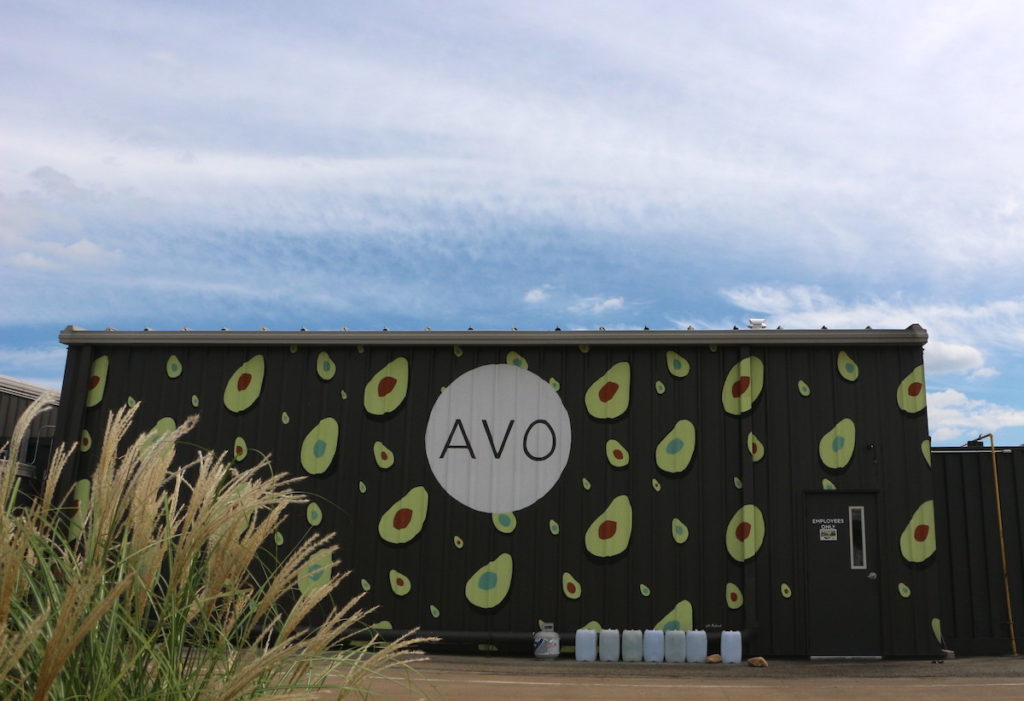
For people in Nashville who keep Kosher, following Jewish dietary laws, there’s almost nowhere to dine out. One of the only Kosher-certified establishments was Woodlands, an Indian restaurant on West End — and that closed earlier this year.
But now another business has decided to go through the extensive process: Avo, a vegan restaurant housed in an old shipping container off of Charlotte Avenue.
Going Kosher means adhering to a
detailed list of dietary rules. Produce has to be carefully inspected to avoid accidentally serving bugs, most vinegar made from wine is not allowed, and bread cannot contain dairy. Serving meat requires buying from a special vendor and having constant kitchen supervision from a Kosher inspector — making it effectively impossible in Nashville.
Rabbi Saul Strosberg, who oversees the Nashville Kosher Commission, says he’s approached some of the vegetarian restaurants in the city and has gotten little interest. Even Woodlands was hesitant.
“To be honest, it took about six years to get Woodlands to agree to go Kosher,” he says. “They had to understand that there was a market, and a loyal market.”
The number of Jews in Nashville who keep strict Kosher is relatively small, maybe 100 families, he says, “but it’s also for … observant Jewish businessmen and lawyers and other people who come to town on a regular basis, and they need a place to eat too.”
The only other restaurant in Nashville that’s Kosher-certified is Grins Vegetarian Cafe on Vanderbilt’s campus, which isn’t open over the summer or on weekends. So any full-time restaurant that gets certified has almost no competition to these Kosher eaters’ dining dollars.
The promise of this small but loyal following convinced Anthony DeGeorge, the executive chef at Avo, to give it a try.
“Here at Avo, that’s pretty much what we do: We cater to special diets, we cater to the vegan community, we have a lot of items that are gluten-free,” he says. “It just seemed like the right thing to do was to try it out.”
This meant combing through his ingredient list, making sure each one met the requirements. When DeGeorge couldn’t find Kosher versions of balsamic vinegar or certain Asian ingredients, he took them off the menu.
“We have Worcestershire sauce that we put in our lentil burger. That was a bit tricky to find a Kosher version. We did. Just took a little time,” he says.
The restaurant also had to replace some plastic containers and cutting boards that couldn’t be properly cleansed. And its bread vendor, Village Bakery and Provisions, agreed to get certified too.
Avo’s owner was skeptical at first. But after the restaurant received its certification in mid-August, any headache to get there has already paid off, DeGeorge says.
“The feedback from the community and our customers has been so overwhelmingly positive,” he says.
The restaurant began serving Sunday brunch the weekend after the certification was official. (This meant finding Kosher, organic tofu for the vegan eggs benedict.) Fifteen minutes before opening, DeGeorge says, “three young men in yarmulkes were sitting outside the door, waiting for us to open up. It was a pleasure of mine to personally greet them with my best
shalom.”


